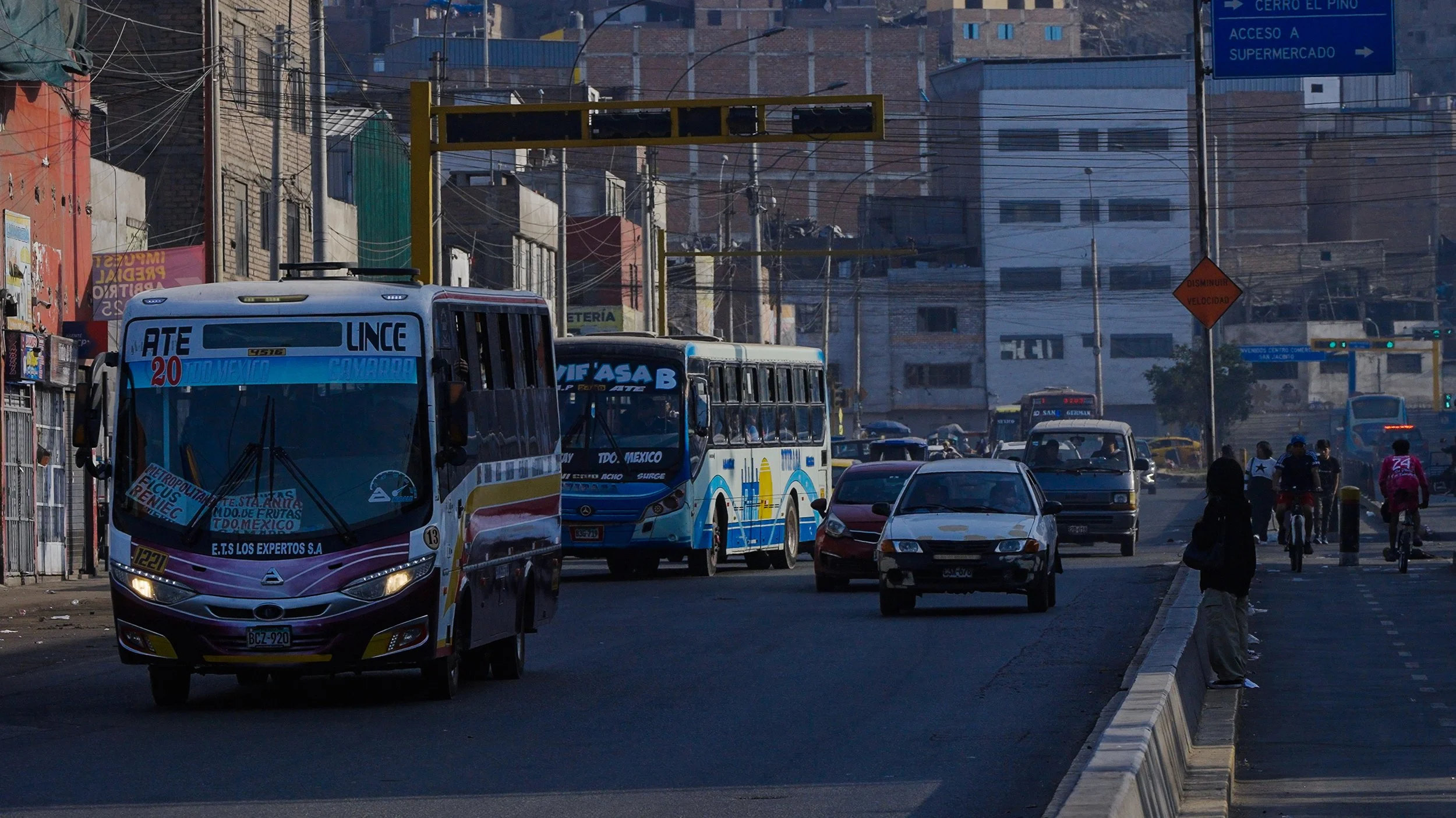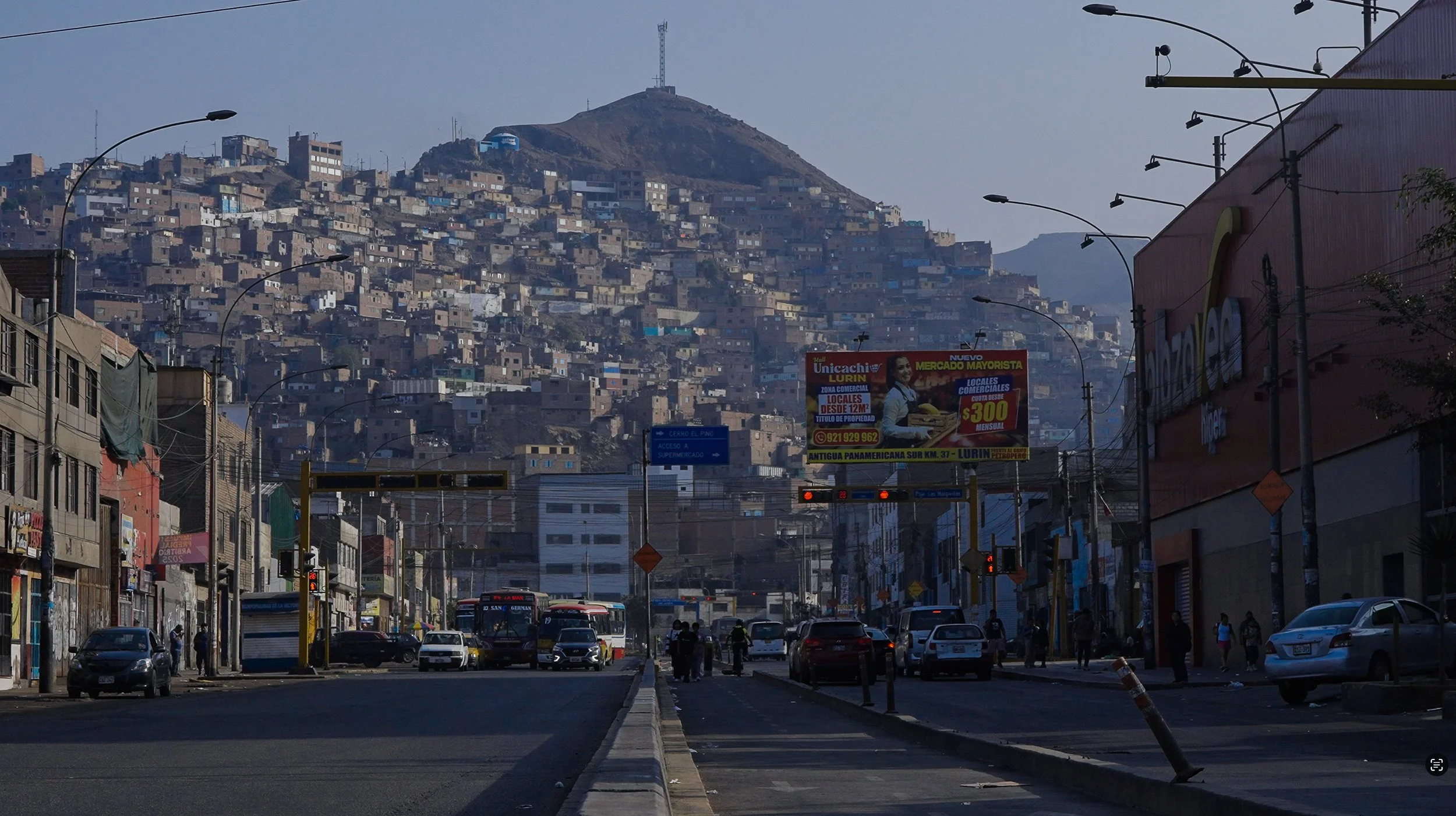The Symphony That Changed Jeremías
In El Agustino, one of Lima’s most underserved and dangerous neighborhoods, a violin changed the life of a shy boy and opened doors to stages he never imagined. This is the story of Jeremías, whose discipline and talent led him to Sinfonía por el Perú—and to a new future for himself and his family.
Jeremías raises the violin under his chin, squints slightly, and begins the dance of bow and string. He was just eight years old when he discovered this new language. Now, at 15, he speaks it with precision. The melody fills his living room, spills through the open window, and mingles with the buzz of motortaxis outside, weaving up the steep streets of this hillside neighborhood.




Jeremías Inchicsana Cahuana lives in El Agustino, one of the most impoverished districts of Peru’s capital, Lima. Its cramped housing began to spring up and climb the arid hills during the 1960s as families from the Andean highlands migrated to the city in search of a better life. Today, most households rely heavily on informal commerce and small-scale manufacturing. Despite crime, overcrowding, and limited access to basic services, community ties are strong and urban art flourishes.
“I’ve seen police chasing criminals right through here,” says Jeremías. “Maybe it’s because the parents lack education or because young people don’t have spaces where they can grow.”
His story took a different path, thanks to two forces: the values instilled by his family and joining Sinfonía por el Perú, a nonprofit organization that nurtures positive habits in vulnerable children and adolescents through music. Founded by acclaimed Peruvian tenor Juan Diego Flórez, this training program draws on the power of choral and instrumental training in genres ranging from classical music to jazz and folk.
“I always wanted Jeremías to learn music. It was a longing deep in my heart,” says his mother, Agustina Cahuana. But there was no room in the budget for dreaming of a place at the conservatory. Everything changed, however, when Agustina heard that her neighbor’s granddaughter was receiving free choral lessons through Sinfonía por el Perú. Without hesitation, she enrolled Jeremías.
Agustina, who runs a small tailoring business from home using leftover fabric scraps, recalls the day they first saw Jeremías perform on a real theater stage. That milestone became a family project—making sure he never missed a single class.
As she turns scraps of material gathered from the Gamarra textile manufacturers into clothing for pets, Agustina reflects on how far they have come: “I used to feel small when speaking with others. I'm very shy, mainly because I only finished primary school. But since my son started meeting new people, teachers, musicians, and performing, I feel braver. I no longer feel so small… Sometimes I think to myself my son, the son of a woman who never learned to read, is getting ahead.”
Each week, she designs new concepts to sell in a nearby market. The money helps with the household finances.
The first concert and a new beginning
Jeremías wasn’t just fulfilling his mother’s dream—he was chasing his own. As a child, he was captivated by videos of Gustavo Dudamel, the world-famous Venezuelan musician and conductor. In Dudamel, he found a role model.
Yet back then, Jeremías was quiet, withdrawn, hesitant to interact with anyone outside his home. That fear faded away after he joined Sinfonía por el Perú. The program didn’t just teach the boy how to play the violin—it helped him build confidence, manage his emotions, and express himself. Through persistence and dedication, he joined the violin program and earned a spot in the national ensemble. Jeremías is now the first musician in his family’s history.
According to Gabriela Perona, Executive Director of Sinfonía por el Perú, the program’s core mission goes beyond music training. It’s about the transferable life skills - resilience, cooperation, critical thinking - that musical practice builds. The initiative also includes family support services and psychological counseling.
That’s why the program is rooted in Peru’s most vulnerable communities. By the end of 2024, Sinfonía por el Perú was active in over 30 locations across 10 regions, reaching some 6,400 children and teens.
The Hilti Foundation has been the main supporter of Sinfonía por el Perú. Since 2007, the Foundation has focused on music as a powerful tool for social transformation, based on the belief that access to culture fosters cohesion, confidence, and opportunity—especially among youth in vulnerable communities. Christine Rhomberg, Director of Music for Social Change at the foundation, says that this strategic shift was inspired by the Foundation’s early partnership with Venezuelan conductor Gustavo Dudamel and the Simón Bolívar Symphony Orchestra—the very ensemble that once inspired Jeremías.
“We’ve seen and we are convinced that well-designed programs like Sinfonía por el Perú really can change lives,” Rhomberg says.
That transformation is already unfolding in Jeremías’s neighborhood. He dreams of studying medicine at the National University of San Marcos—but he has no intention of leaving his violin behind. His passion for music has sparked curiosity among classmates, neighbors, and even his younger brother Zacarías, who recently joined the program with a goal of his own: “to be like him.”
For Agustina, the future looks brighter than ever. “I want him to travel the world with his art—to Italy, France, Germany,” she says, while stitching garments to sell at the next market day.
